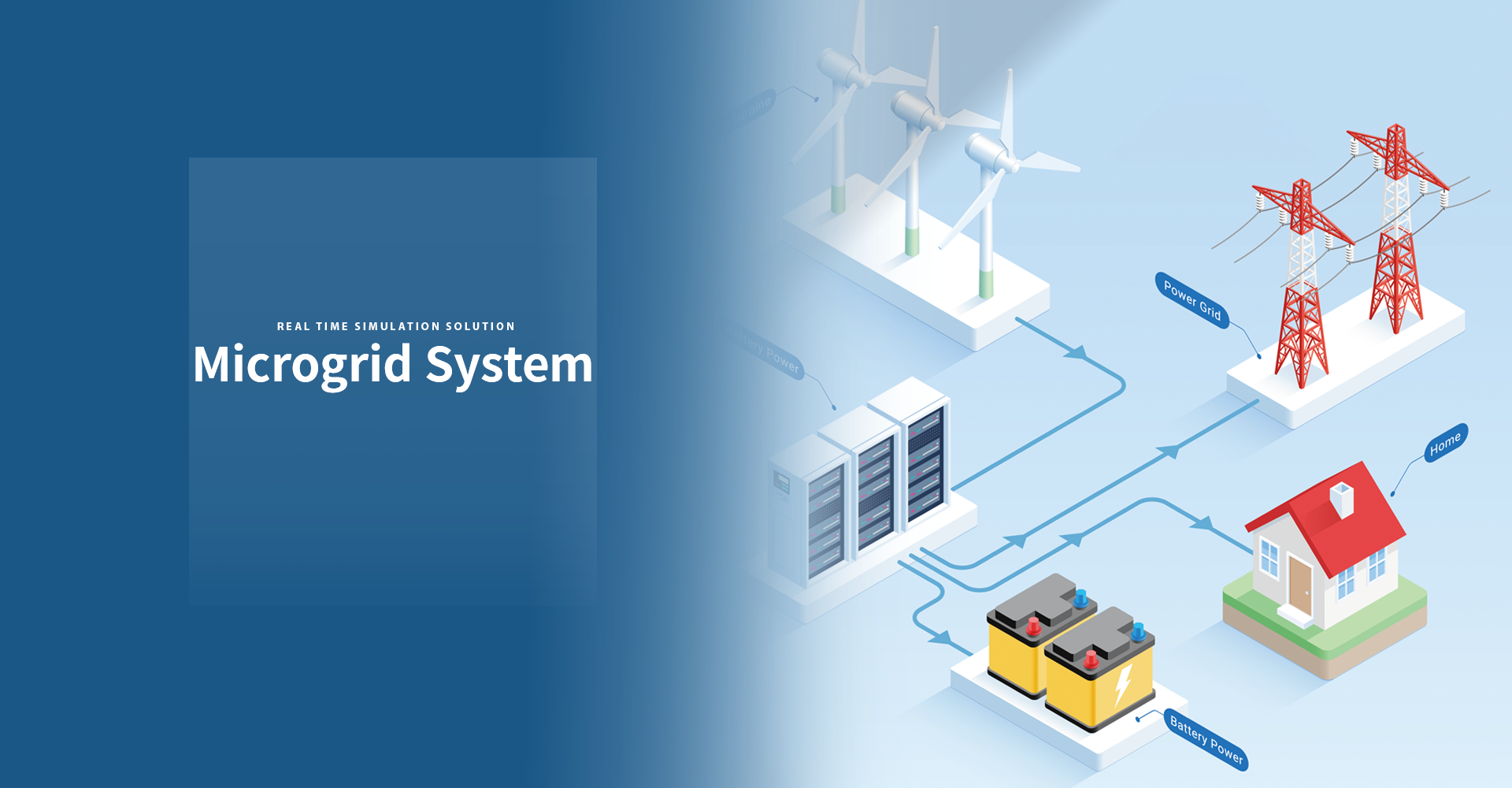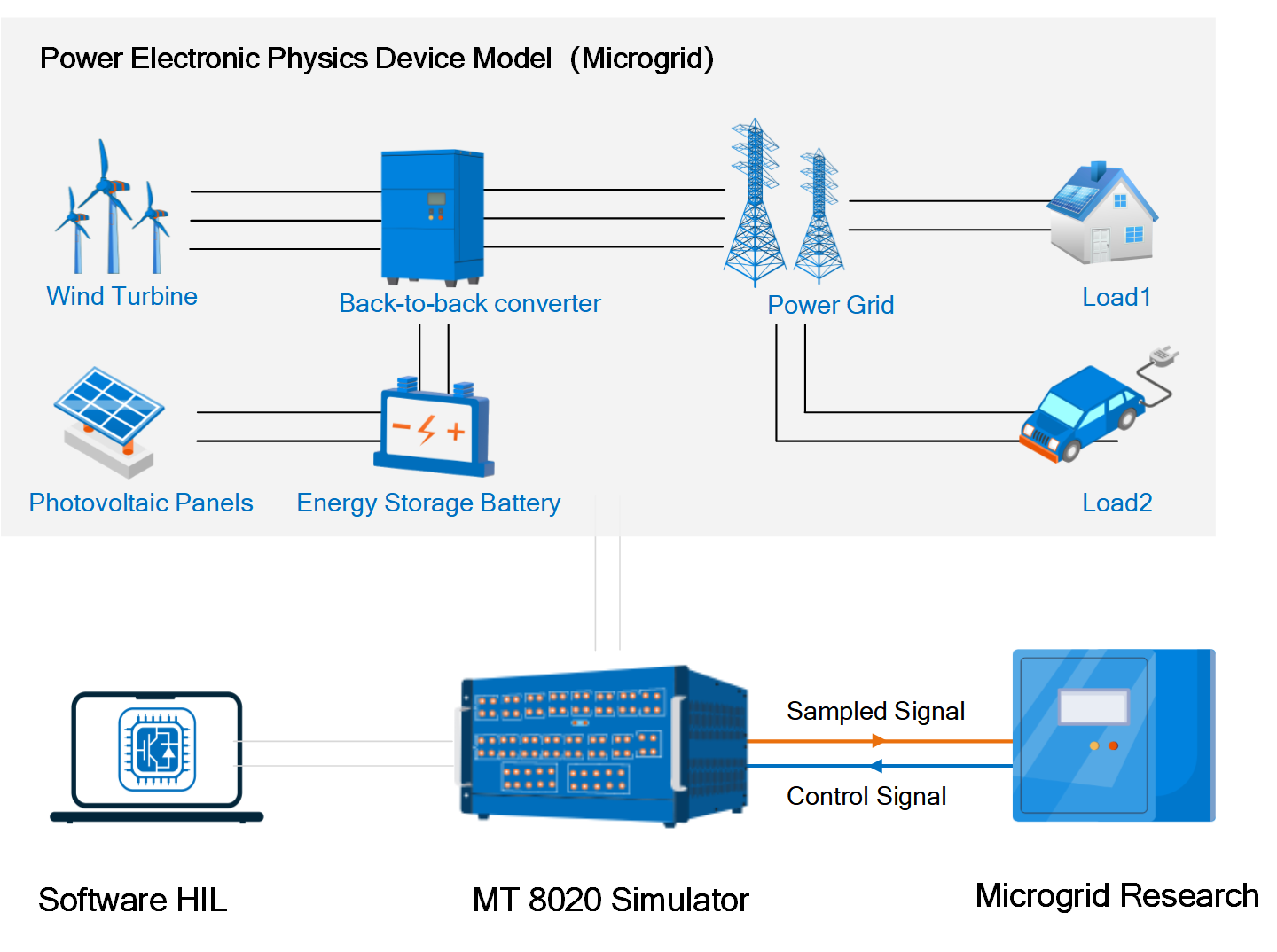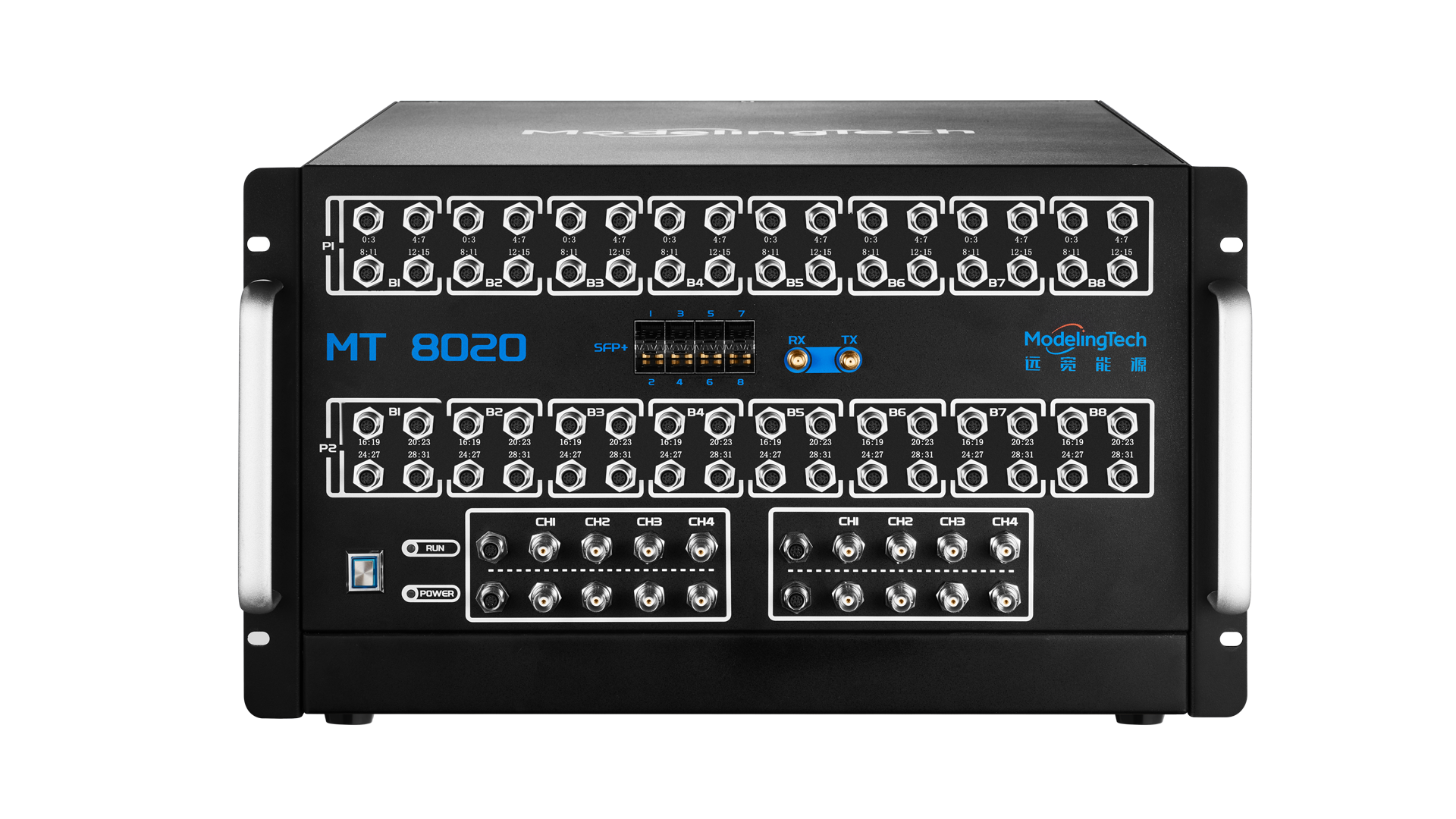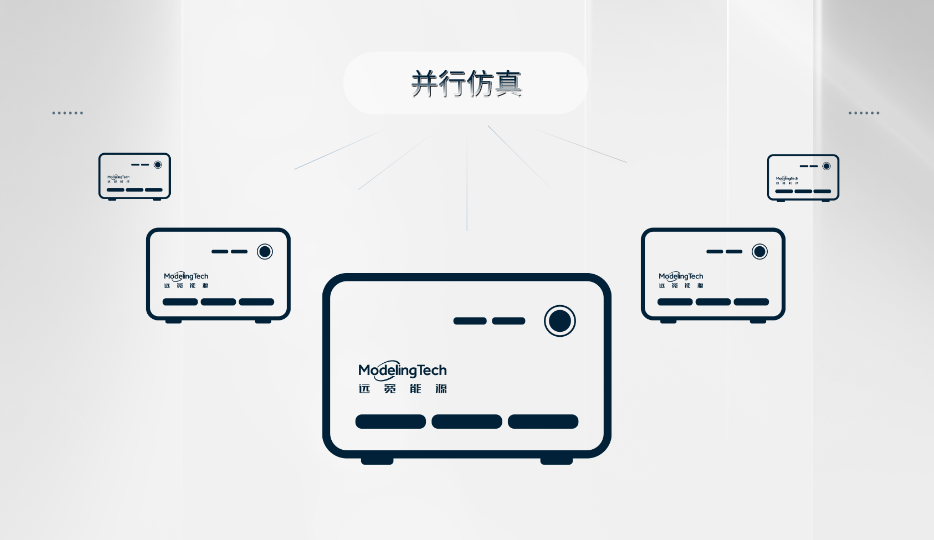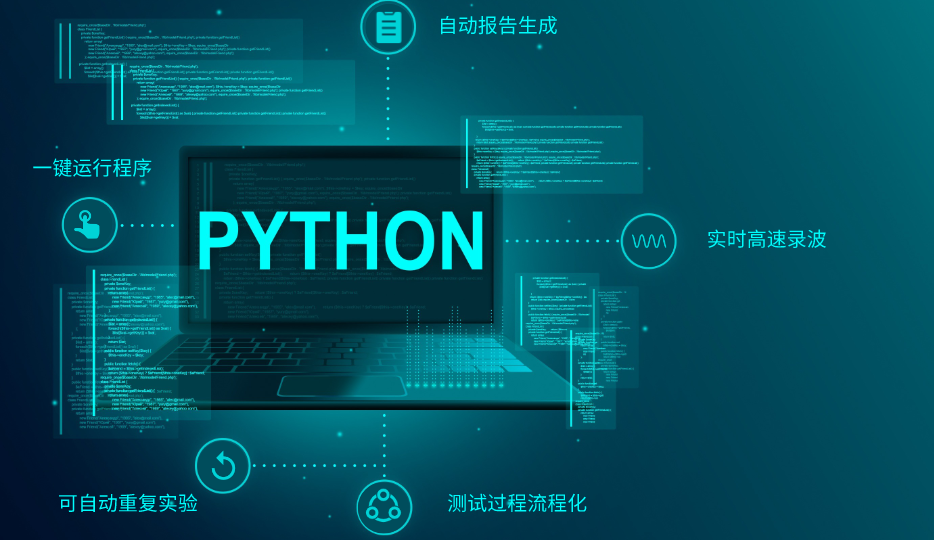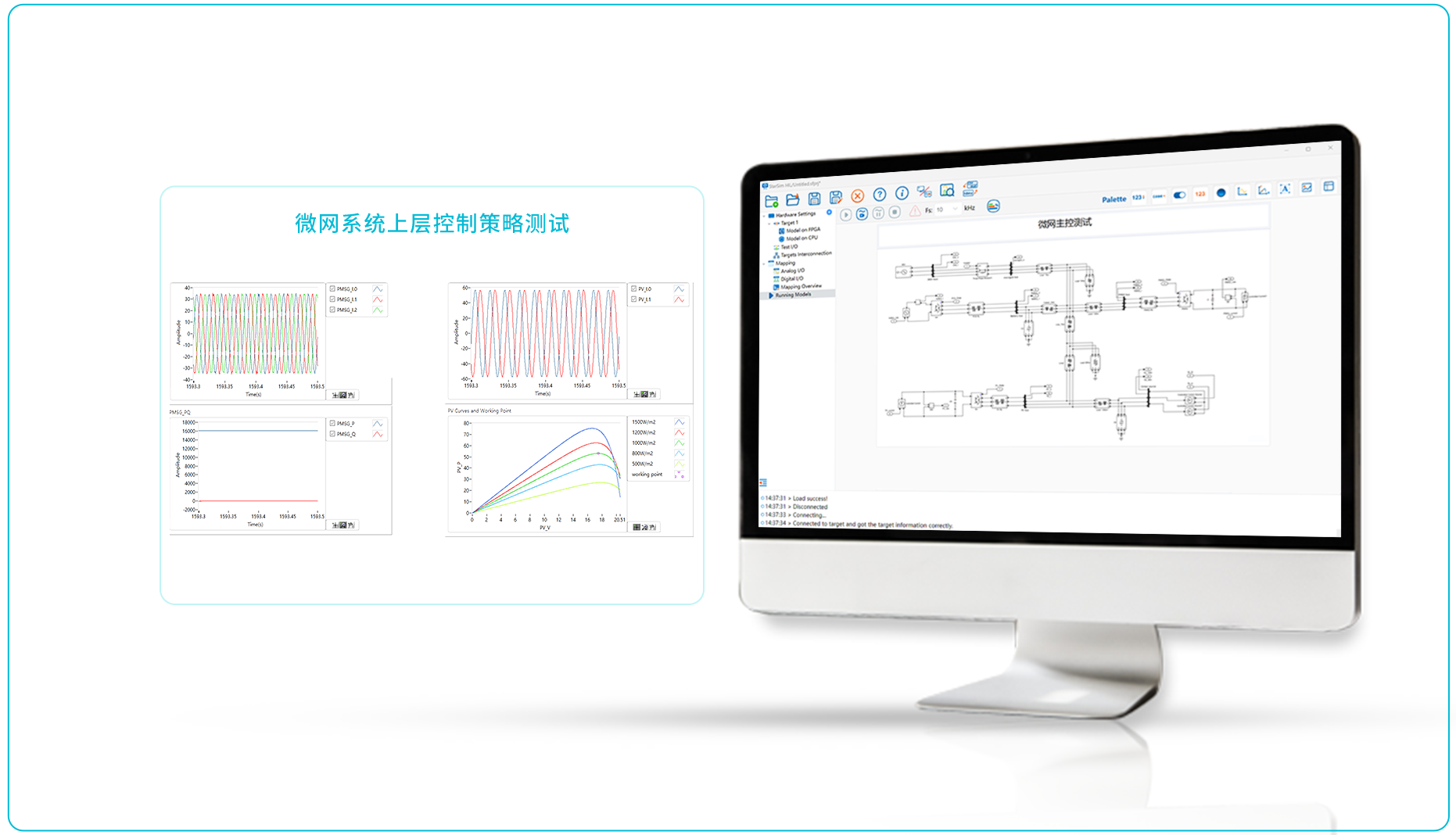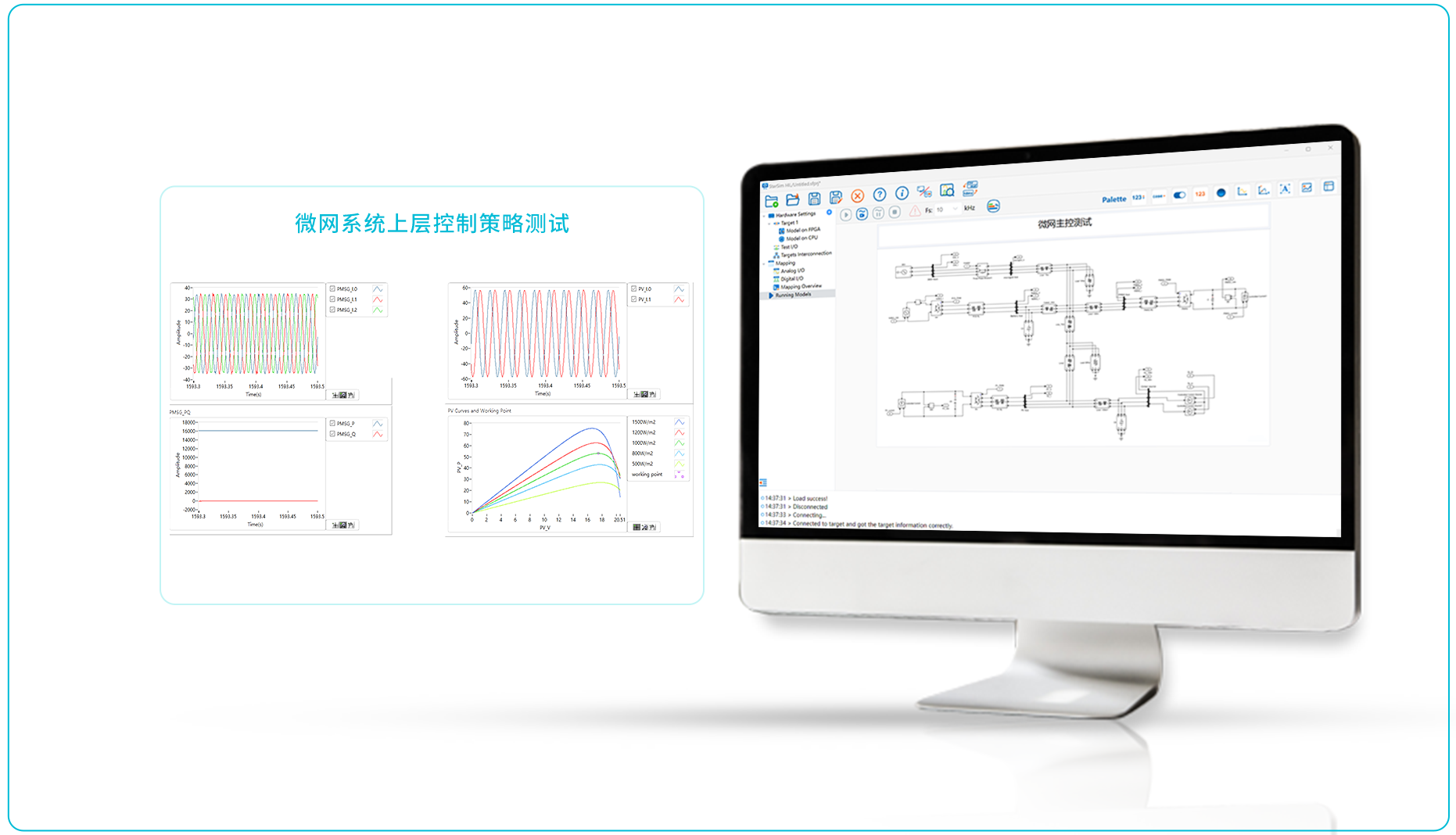In order to meet various energy quality requirements and improve power supply reliability, the technical research on microgrids focuses on multiple aspects including microgrid control, microgrid protection, microgrid access standards, and microgeneration. However, due to the flexible structure and diverse composition of microgrids, the traditional method of constructing small-scale physical systems poses significant challenges in terms of safety, economy, and research flexibility. With the advancement of simulation modeling software technology, multi-core CPU, and FPGA hardware technology, the use of simulation for constructing and testing microgrids has gained widespread application.
The StarSim real-time simulation platform allows for real-time operational simulations of microgrids. The platform constructs models of microgrid systems containing renewable energy nodes through modeling, and simulates the real-time responses of microgrid systems using simulation techniques. Additionally, the system can work in conjunction with the energy management component of microgrid systems to achieve closed-loop control and regulation. The microgrid research platform based on real-time simulation offers the flexibility of model construction and real-time simulation, as well as the authenticity of operating in a closed loop with corresponding physical signals. It also has advantages over traditional low-power systems in terms of handling complex operating conditions, conducting hazardous experiments, and testing new system structures.

 Technology
Technology

 User Cases
User Cases
































